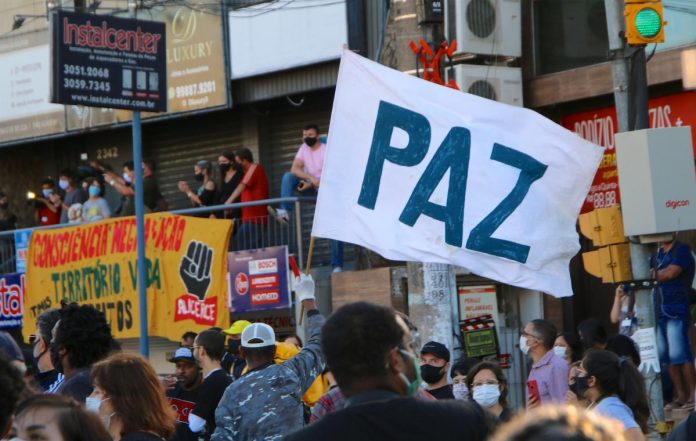Democracy at risk, increasing cases of violence against women and the threats to children’s futures. A regional meeting with church representatives from Latin America during the World Council of Churches (WCC) central committee 2021 showed that pre-pandemic problems now hit harder the vulnerable communities.
Voices from Argentina, Brazil, Colombia, Honduras, and Mexico shared their insights about a wide range of social, political and economic concerns that increased during the COVID-19.
Political polarization combined with denialism has transformed the political torment in many Latin American countries into an obstacle for a joint plan to tackle the COVID-19 pandemic. The result is institutions at risk, division at the heart of society and lack of hope.
Lamenting the over 500,000 deaths from COVID-19 in Brazil, Thomas Kang, from the Evangelical Church of the Lutheran Confession in Brazil, said that the current political polarization in the country and the ongoing denial of the gravity of the pandemic impact by the current national administration are among the obstacles to the implementation of an effective national strategy to combat such reality. “Sadly, polarization and conflict are also seen in the midst of the churches’ lives and structures, what causes fragmentations and a battle of somehow misleading narratives,” he said.
The group’s analysis of the impact of COVID-19 pandemic also lift up the suffering of children and adolescents affected by a “triple shock:” school closures, confinement, and loss of economic resources for their families.
“In Argentina, the vulnerable sectors of society are the ones that suffered the most with the pandemic,” said Ana De Medio, from the Evangelical Church of the Disciples of Christ in Argentina. “Young people, girls, adolescents are those who suffered the most and that are still suffering. Therefore, we can’t forget the most vulnerable groups,” she added.
In Latin America, violence against women was already a serious concern before the pandemic. Still, since early 2020 some countries and local governments have noticed that the number of calls to hotlines that offer specific attention and counselling in case of violence, has increased up to 80%. At the same time, calls from children or family members of women who are victims of violence have since grown during quarantine.
Sharing about the situation in Honduras, Rev. Canon Aida Consuelo Sanchez-Navarro, from the Episcopal Church, stated that the pandemic has triggered a significant increase in the number of cases of domestic violence in the country. “As a church, we try to bring an attitude of protection, a voice of hope to the people, but also denunciation of such suffering,” she said.
“Besides the health emergency of COVID-19, the reality of extreme poverty and the massive migration cause a direct impact on the food sovereignty of hundreds of thousands of people,” added Sanchez-Navarro.
Sharing concluding remarks to the meeting, WCC deputy general secretary Rev. Dr Odair Pedroso Mateus, from the Independent Presbyterian Church of Brazil, recalled the WCC 11th Assembly theme “Christ’s love moves the world to reconciliation and unity” and its connections to the many examples of suffering and despair in Latin America.
“We hope that the assembly theme will offer a wide horizon of reflection and inspiration to all churches engaged in the work for justice and peace and the care for God’s creation around the world,” he said. “In the current political context in Latin America, marked by populist and excluding narratives, our work for Christian unity and service to the poor has special significance.”
The meeting of the WCC central committee goes on until 29 June.
WCC, oikoumene.org














